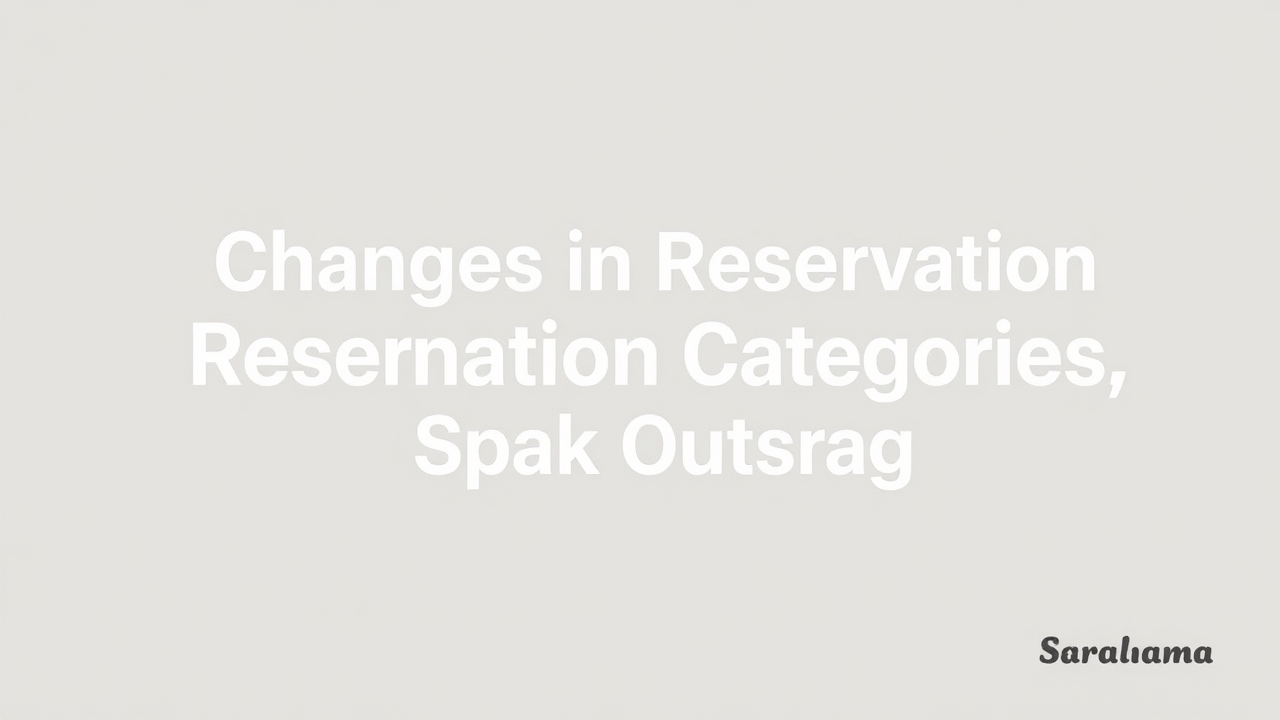The Trinamool Congress, which has long relied on support from women and Muslim voters in West Bengal, is now facing growing anger from backward Muslim communities. The controversy centers on changes to the state's Other Backward Classes list. The revised list, released in May and June 2025, has removed several large Muslim groups and moved many others from the more advantageous OBC A category to OBC B. The OBC A category offers 10% reservation in government jobs and education, while OBC B provides only 7%. Protesters claim 37 Muslim groups were dropped entirely, with 16 from OBC A and 21 from OBC B. Meanwhile, several Hindu sub-castes were added to OBC A. On October 23, thousands of Muslim youths organized a protest march in Murshidabad town, marking the first public demonstration by the minority community on this matter. Muslims comprise 27.1% of West Bengal's population according to the 2011 Census. The changes have already affected admissions and recruitment, with Muslim candidates losing opportunities in universities and college principal positions. The matter is currently pending before the Supreme Court, with the next hearing scheduled for November 6. Protesters are demanding the government restore the old list and conduct a proper comprehensive survey.

Changes in Reservation Categories Spark Outrage
The revised OBC list has significantly altered the distribution of Muslim groups across reservation categories. The old OBC A list included 72 Muslim groups out of 80 total, but the new list contains only 35 Muslim groups out of 49. In OBC B, the numbers changed from 40 Muslim groups to 41. Groups such as Shershabadia, Khotta, Mullick, and Rajmistry were moved from OBC A to OBC B, while several Hindu sub-castes like Goala, Gope, Yadav, and Kumbhakar were promoted to OBC A. The Muslim Majhi community was removed entirely, while their non-Muslim counterparts were upgraded to OBC A. Manajat Biswas, president of Progressive Intellectuals of Bengal, stated that 34 Muslim sub-castes were downgraded from OBC A to OBC B. The two categories previously covered around 80% of Muslims in the state.
Impact on Education and Government Jobs
The changes have already caused immediate harm to Muslim students and job seekers. Three Muslim candidates were denied PhD interviews at Panchanan Barma University in Cooch Behar because their communities no longer qualified under OBC A. Bankura University saw very few Muslim applicants in OBC A for postgraduate courses in physics, mathematics, geography, history, philosophy, and journalism. Among 87 principals selected by the West Bengal College Service Commission, there were no Muslim candidates. Protesters warn that the upcoming School Service Commission recruitment, which must be completed by December 31 as per Supreme Court orders, will be similarly affected. The Calcutta High Court's Registrar General has directed district and session judges to pause all ongoing recruitment processes in OBC A and B categories until the matter is resolved.
Legal History and Demands for Action
In 2010, the Left Front government added 66 Muslim sub-castes to the OBC list, covering around 87% of the state's Muslims. The executive order was never enacted into law, and the Left government fell the following year. In 2012, Mamata Banerjee's government passed legislation adding 35 more sub-castes, mostly Muslims. A petition challenged this law's constitutional validity. Last year, the Calcutta High Court struck down the 2012 law and ordered fresh rules following national norms. Protesters now demand the government raise the OBC quota ceiling to 25% to accommodate excluded groups. They want the old list restored and a proper comprehensive survey conducted. Political anthropologist Adil Hossain criticized the Commission's sample survey methodology, stating a comprehensive survey of all castes and their representation in public jobs was needed, similar to surveys conducted in Bihar, Telangana, and Karnataka.
Source: Link
